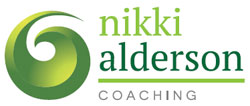Unconscious Bias
An American Business School Case Study undertaken in the Noughties examined perceptions of men and women in the workplace. An identical (and truthful) story about a successful venture capitalist was told to the students with only one detail changed to half the group: her gender. Students, polled about their impressions of the “man” and woman, rated them equally competent, yet the “man” came across as the more appealing colleague, the woman more selfish. In her book, Lean in: Women, Work and The Will to Lead, Sheryl Sandberg concluded in light of this that women will continue to sacrifice being liked for being successful.
Rhino Hide
In that case, Ladies, we’d better get our rhino hides out. But how?
Positive Intentions behind Internal Chatter
Hearing negativity or criticism directed towards us can feel hurtful. It takes an active shift in thinking to master our minds and avoid being mortally wounded by it. As Charles F. Glassman said: “Sticks and stones can break your bones, but words can never hurt you…unless you believe them….” Criticism can affect us most deeply when it reflects what we believe about ourselves. Listen out for when your inner critic reinforces any external criticism. I use NLP techniques with coaching clients to get them to recognise the negative chatter and acknowledge that in some way it is looking out for or protecting them. Then challenge the status quo: when ordinarily they would have listened and more to the point, believed, what it had to say, this time, they say “Thank you. I’m ok. I don’t need you to tell me those negative things to keep me safe.”
Wallowing with Finality
It was Arianna Huffington, Co-Founder of the Huffington Post, who said that learning to withstand criticism is a necessity for women. Her advice, acknowledging that women don’t live in an emotionless vacuum, is to let ourselves react emotionally, feel anger and sadness at being criticised, then quickly move on. She drew an analogy with children, who one minute can express deep, all pervading rage or heartbreak, then in the next, dust themselves off and crack on. I like to think of it as wallowing with purpose and finality.
Unhooking
Tara Mohr, in her brilliant book, Playing Big: A Practical Guide for Brilliant Women Like You, advises that we unhook from external praise and criticism. She reminds us that feedback doesn’t tell us about us; it tells us about the person giving the feedback. Whilst it can be strategically useful to incorporate feedback, letting the rest go is refreshing. In reality, the only people from whom to gather feedback are the audiences and decision makers you need to influence and reach.
Top Tips
- As a female leader, doing formative, innovative work, and challenging/ changing norms, accept that criticism comes with the territory. Not ruffling the odd feather here or there surely means we aren’t making enough progress in the ground-breaking work we are so capable of.
- Given the problem with criticism or praise is usually really a problem with what we believe about ourselves, work hard to address the inner doubt rather than seeking external validation in an attempt to resolve it. Mohr suggests finding an “unhooked-from-criticism” role model to aspire to. My immediate thoughts fell to Hilary Clinton.
- Finally, ask, “What’s more important to me than praise?” A significant part of my coaching business is about being authentic, acting with integrity, being true to myself and inspiring others. If you do the same then, like me, you can truly enjoy zigging even when others are zagging.
Nikki Alderson is a specialist corporate and executive coach empowering female lawyers to achieve their career ambition whilst creating congruent lives.
For more information, email nikki@nikkialdersoncoaching.comto arrange a free, no obligation consultation or check out www.nikkialdersoncoaching.com
Follow me on LinkedIn, Facebook and Twitter by clicking the links below:

